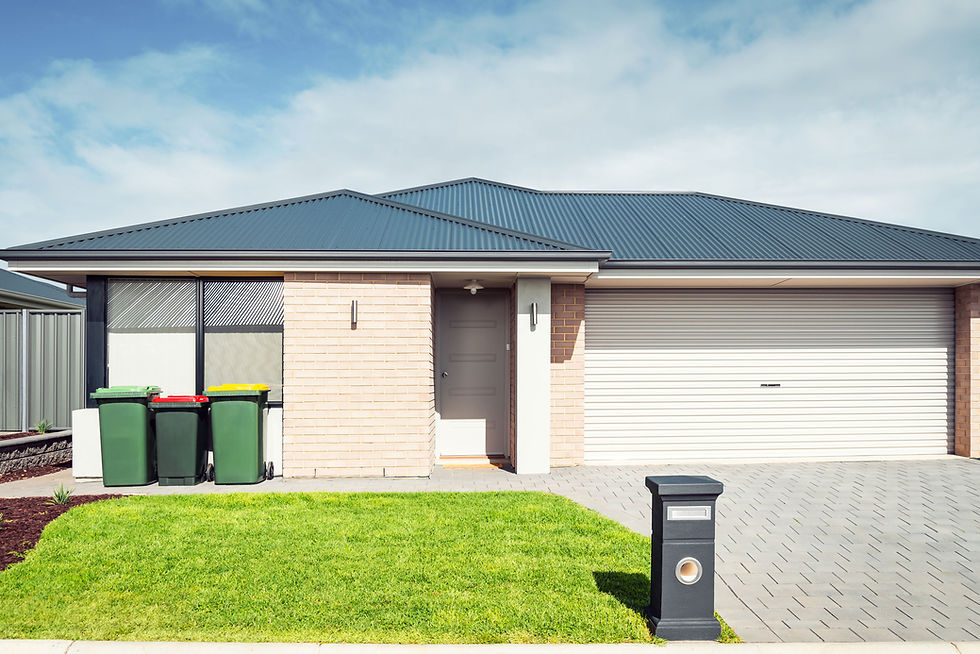Changes Ahead: What Victoria’s New Energy Standards Mean for Rental Properties
- Kathryn Docking

- Jul 31, 2025
- 3 min read
Updated: Aug 1, 2025

The Victorian State Government has just announced a sweeping set of reforms aimed at transitioning the state’s housing towards more energy-efficient, electric-only homes.
These reforms represent a significant update to building and rental standards — and property managers will play a crucial role in helping owners prepare.
“This is an important step towards making rental properties safer, more comfortable and more energy efficient - giving renters peace of mind for both winter and summer and driving down their bills.”
Nick Staikos, Minister for Consumer Affairs
Whether you're managing new developments or older properties, these changes will impact how you plan for maintenance, appliance upgrades, and lease renewals over the next few years.
Key dates for Rental Property Standards, including Blind Cord Safety :
1 December 2025
Blind Cord Safety Anchors must be fitted for all window coverings with cords hanging below 1600mm
1 January 2027
No gas connections permitted for new builds in Victoria after this date
1 March 2027
Hot water or heating appliances unable to be repaired must be replaced with energy efficient electric appliances
New lease agreements require 4-star rated showerheads, energy efficient cooling in the main living area and R5.0 rated ceiling insulation
1 July 2027
Draught proofing measures must be installed on external windows and doors, and on wall vents
1 July 2030
All rentals must provide energy efficient cooling regardless of the status of the lease agreement
Here’s what you need to know.
All-Electric New Builds by 2027
From 1 January 2027, all new homes in Victoria must be constructed as all-electric. This means no new gas connections and a full shift to electric appliances and systems.
Appliance Replacements Must Be Energy-Efficient

From 1 March 2027, when hot water or heating appliances break down and can’t be repaired, they must be replaced with an efficient electric model — such as a reverse cycle air-conditioner or heat pump water heater.
Important: There is no requirement (yet) to replace gas stovetops with electric alternatives.
Water, Cooling & Insulation Standards for New Leases
Also kicking in on 1 March 2027, new lease agreements will require the following upgrades in all rental properties:
4-Star Shower Heads – Water-saving fittings must be installed.
Energy-Efficient Cooling – At least one energy-efficient cooling unit (e.g., split system) in the main living area.
Ceiling Insulation – Upgraded to R5.0 rating and installed by an accredited professional.
By 1 July 2030, energy-efficient cooling will become mandatory for all rentals, regardless of lease status.
For PMs: Include these checks in your routine inspections and condition reports. Start discussions with owners early — especially if the current cooling setup is older or the insulation rating is unknown.
Draught Proofing Requirements
From 1 July 2027, new leases must also include draught-proofing measures on:
External windows
External doors
Wall vents
This will help reduce heating and cooling bills for tenants — and support Victoria’s push to improve residential energy efficiency.
PM action: Conduct a draught assessment as part of your regular lease renewal process or pre-lease inspection checklist.
What Property Managers Should Do Now
The new standards may not take effect until 2027, but proactive planning now will prevent rushed upgrades and compliance headaches down the line. Here’s a quick action plan:
Audit your portfolio – Identify properties that may need upgrades and prioritise based on age, current systems, and insulation.
Talk to your landlords – Educate owners about the upcoming changes and the long-term cost savings of efficient systems.
Plan your budget – Start costing upgrades and consider phasing them in over the next 2 years.
Choose trained technicians – Ensure you use technicians specifically trained to assess each rental minimum standard is essential for maintaining rent roll compliance.
All our Rental Minimum Standards check are conducted by technicians trained in how to fully assess each category according to the rental regulations.
Want more details?
You can read the full Victorian Government announcement here.
Have questions or need help navigating the changes?
We’re here to support you and your owners through the transition — reach out and we'll call you right back.


